Mastering ISF Filing: Key Requirements for Imports by Air, Ocean, Land, and Rail
License To Import // 800-217-1690 // file@licensetoimport.com // www.licensetoimport.com
In this response, we dive deep into the key requirements for Importer Security Filing (ISF) in different modes of transportation for customs brokerage. We start by discussing the filing requirements for air, ocean, land, and rail transportation. For air transportation, the ISF must be filed 12 hours before the aircraft's departure and is submitted to the air carrier or its authorized agent. In ocean transportation, the ISF must be filed 24 hours before the vessel is laden and the responsibility lies with the vessel operating carrier or its authorized agent. For land transportation, the ISF must be filed at least 1 hour before the truck arrives at a US border crossing, with the responsibility falling on the importer, their agent, or the highway carrier. Finally, for rail transportation, the ISF must be filed 24 hours before the train arrives at the first port of arrival in the US, with the filing responsibility lying with the rail carrier or its authorized agent.
In addition to timing requirements, we also discuss the key information that needs to be included in the ISF filing, such as accurate and detailed information regarding the cargo, including the seller, buyer, ship-to, and consolidator's name and address, as well as the importer of record number, consignee number, country of origin, and Harmonized System code for each line item. We highlight the importance of providing accurate and complete information to avoid penalties, delays, or cargo holds at the port of entry.
Moreover, we discuss the role of a customs bond, which acts as a financial guarantee between the importer and the government to ensure compliance with US customs regulations. Without a bond, the shipment may not be allowed to enter the United States. Customs bonds are typically obtained through a surety company or a customs broker. Speaking of which, we emphasize the role of a customs broker in assisting importers with the customs clearance process. They are licensed professionals who specialize in navigating complex import regulations and ensuring compliance with all requirements, including the timely filing of the ISF. Lastly, we highlight the benefits of partnering with a customs broker for those new to international trade or finding the customs clearance process overwhelming, as they act as advocates and streamline the import process.
#ISFfiling #customsbrokerage #importprocess #internationaltrade #timelyfiling #customsbond #modesoftransportation #compliantimport #smoothimport #importrequirements
"0:04 Key Information for ISF Filing
2:42 Customs bond ensures compliance with customs regulations
2:57 Importance of Customs Bond and Customs Broker"
-
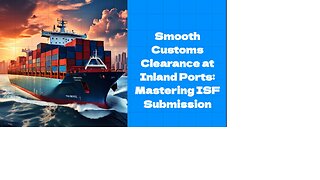 4:07
4:07
ISF Depot
1 month agoISF Submission Demystified: Navigating Inland Ports for Import Success
3 -
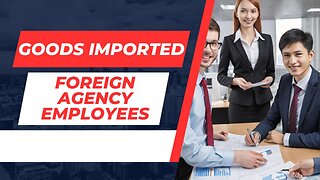 5:24
5:24
ISF Expedite
2 months agoNavigating ISF Requirements for Goods Imported by Foreign Agency Personnel
9 -
 4:09
4:09
ISF Checklist
1 month agoUnlocking the Secrets of ISF-102 Compliance: A Comprehensive Guide for Importers
5 -
 3:47
3:47
ISF Checklist
1 month agoSmooth Customs Clearance: Mastering ISF Filing for Procurement
1 -
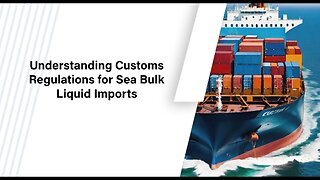 4:43
4:43
ISF Solution
1 month agoThe Expert Guide to Customs Regulations for Imports by Sea Bulk Liquid Transport
1 -
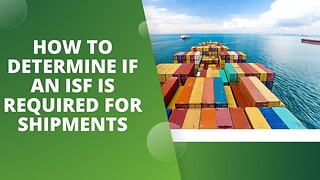 2:13
2:13
ISF Entry
3 months agoUnderstanding ISF Requirements for Shipments
2 -
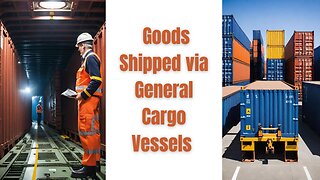 1:53
1:53
ISF Entry
4 months agoKey Steps in the ISF Process for General Cargo Vessel Shipment
5 -
 5:46
5:46
ISF Expedite
2 months agoNavigating ISF Requirements for NGOs Importing Goods into the US
5 -
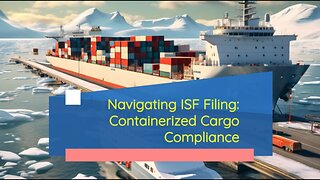 7:12
7:12
ISF Solution
2 months agoISF Requirements for Container Shipments
3 -
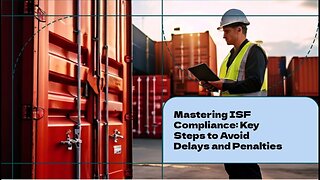 4:07
4:07
ISF Checklist
1 month agoStreamline Your Imports: How Customs Brokers Help Ensure ISF Compliance